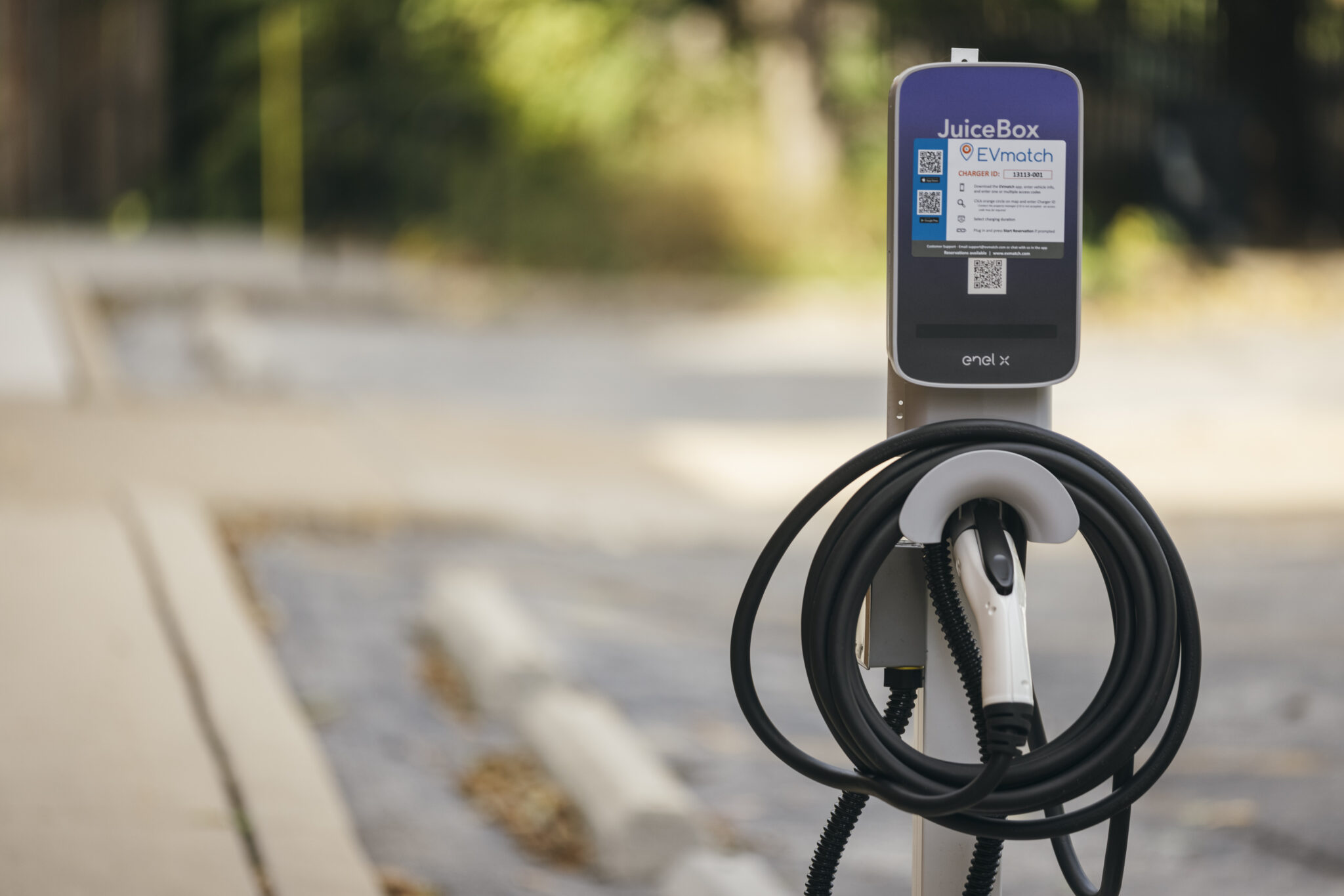 As of May, Illinois has met 7 percent of its goal to get 1 million EVs on the road by 2030. While the state has made significant efforts in recent years to facilitate the transition away from gas-powered to all-electric vehicles, further actions are necessary to meet its goal and reduce tailpipe emissions.
As of May, Illinois has met 7 percent of its goal to get 1 million EVs on the road by 2030. While the state has made significant efforts in recent years to facilitate the transition away from gas-powered to all-electric vehicles, further actions are necessary to meet its goal and reduce tailpipe emissions.Officials hope that more access to charging electric vehicles could help accelerate this progress as the state funds the expansion of EV chargers and advances legislation supporting EV adoption.
“[Illinois] is putting the building blocks together to make sure that we are one of the leading states in EV adoption and EV manufacturing,” said Dany Robles, Climate Policy Director at the Illinois Environmental Council.
On Monday, the Illinois Environmental Protection Agency announced $12.6 million in grants to fund 368 charging ports in 78 locations in restaurants, malls and gas stations across the state. The grants are part of an $84 million share the state was allocated from a Volkswagen settlement for allegations of emissions cheating. A third of the share was allocated toward all-electric public transit, and another third was allocated to all-electric school buses.
Meanwhile, Gov. Pritzker is expected to sign the Electric Vehicle Charging Act in the coming months requiring that all new residential buildings with designated parking spaces have EV charging capabilities. Each residential unit in a single-unit or multi-unit building that has designated parking would be required to have at least one parking space that is “EV-capable.”
The mandate would not require the installation of a charger but would ensure that the home’s electrical panel can withstand the high voltage load necessary and the installation of charging equipment. The law would become effective 90 days after it is signed into law.
Neda Deylami of the Environmental Defense Fund and drafter of the bill said that the proposed legislation aims to make charging more accessible to owners of EVs and people interested in purchasing an EV who do not live or work close to public chargers. Ensuring that new builds are equipped with a charging system is significantly cheaper than retrofitting a building later to make it charging-capable.
Residents in multi-unit buildings often face cost, installation and electrical upgrade barriers for EV charging placement, said Eleftheria Kontou of the Department of Civil and Environmental Engineering at the University of Illinois at Urbana-Champaign. This is especially true in Chicago, where three out of four residents live in a multi-unit dwelling.
“Public chargers are great, but they don’t fit everyone’s lifestyle,” said Deylami. “It was an integral step to set up access–ideally equitable–for people living in multi-unit homes.”
Illinois would be joining several other states with laws requiring new and renovated residential developments to have the electric capability for renters and owners to install equipment to charge electric vehicles.
The proposed EV Charging Act passed both chambers in May and was sent to Gov. Pritzer earlier this month. The bill also outlines a mechanism for renters and unit owners to ask landlords and homeowners associations for charging infrastructure.
“The Act enables renters and condo owners to pursue charging deployment without unreasonable restrictions from landlords and homeowners associations, mitigating inequity in accessing home charging,” said Kontou.
The bill and new funds build on the state’s momentum to make Illinois an EV-friendly state and reduce emissions from transportation—the state’s largest source of greenhouse gas emissions.
In August, the Federal Highway Administration approved the state’s plan to spend $148 million over the next five years to build a network of charging stations along major highways with the help of federal infrastructure funds. In December, the state offered more tax incentives to boost EV production in underserved areas impacted by energy transitions.
The demand is clear, experts say. In 2021, the Climate and Equitable Jobs Act offered $8.7 million in rebates to purchase an EV or electric motorcycle. The state said that rebate funds ran out in January, and the number of registered EVs in the state has more than doubled in the last two years. Illinois has more EVs than any other state in the Midwest and the ninth-largest number of EVs in the country, according to electric vehicle registration data collected by the U.S. Department of Energy.
“When rebates are targeting lower-income households and the used car market, it is more likely to observe equitable outcomes in the adoption of EVs,” said Kontou.
New rebate funds have yet to be announced. Deylami said more rebates are necessary to support the growing demand for electric vehicles and for lower-income households to become EV adopters.
Robles hopes to soon see the same momentum for the electrification of medium- and heavy-duty trucks, a major source of air pollution in Illinois due to the more than 2,400 warehouses in the state that disproportionately burden lower-income, Black and brown communities.
“EVs are highly talked about as far as personal vehicles or even public transportation options like buses, but we’re not fully there on pushing those zero-emission vehicles for heavy duty and medium duty vehicles at the state level,” said Robles. “Part of that long-term goal that we need to develop out is how do we alleviate those communities?’”